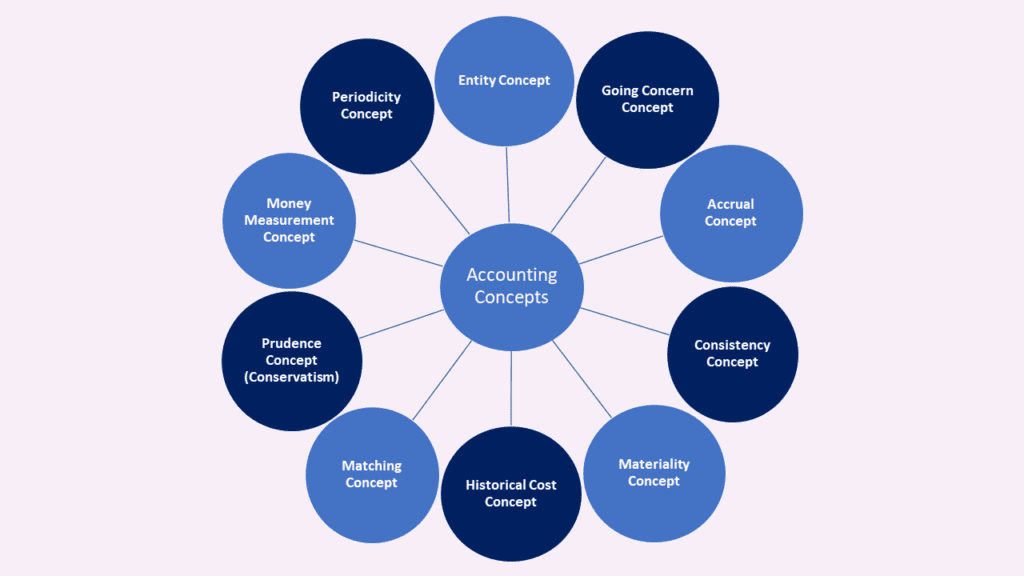
Accounting concepts, also known as accounting principles or fundamental accounting concepts, are the basic principles and guidelines that provide a framework for the preparation and presentation of financial statements. These concepts ensure consistency, reliability, and comparability in financial reporting across different businesses and industries.
1. Entity Concept:
The entity concept states that a business is treated as a separate entity from its owners or shareholders. The financial transactions and activities of the business are recorded and reported separately from the personal finances of the owners.
2. Going Concern Concept:
The going concern concept assumes that a business will continue to operate indefinitely unless there is evidence to the contrary. Financial statements are prepared on the basis that the business will continue its operations in the foreseeable future.
3. Accrual Concept:
The accrual concept states that transactions are recorded when they occur, not when the associated cash is received or paid. Revenue is recognized when it is earned, and expenses are recognized when they are incurred, regardless of the timing of cash flows.
4. Consistency Concept:
The consistency concept requires that accounting methods, principles, and practices remain consistent over time. This ensures that financial statements can be compared from one period to another, providing meaningful and reliable information.
5. Materiality Concept:
The materiality concept emphasizes that financial information should be reported if it is significant or material enough to influence the decision-making of users of the financial statements. Materiality is based on the nature and size of the item or event.
6. Historical Cost Concept:
The historical cost concept states that assets and liabilities should be recorded at their original purchase or acquisition cost. This concept provides reliability and verifiability of financial information.
7. Matching Concept:
The matching concept requires that expenses be recognized in the same accounting period as the related revenues they helped generate. This concept ensures that the matching of revenues and expenses accurately reflects the results of the business’s operations.
8. Prudence Concept (Conservatism):
The prudence concept encourages accountants to exercise caution and conservatism when making judgments and estimates. It suggests that potential losses should be recognized immediately, but potential gains should only be recognized when realized.
9. Money Measurement Concept
Money Measurement concept states that only those transactions are recorded and measured in monetary terms. In simple words, only financial transactions are recorded in books of accounts.
10. Periodicity Concept
The periodicity concept states that the entity or the business needs to carry out the accounting for a definite period, usually the financial year. The period for drawing financial statements can vary from monthly to quarterly to annually. It helps in identifying any changes occurring over different periods.
These accounting concepts form the foundation for the preparation and interpretation of financial statements, ensuring that financial information is accurate, reliable, and relevant. They guide the recording, measurement, and presentation of financial transactions and help users of financial statements make informed decisions.
